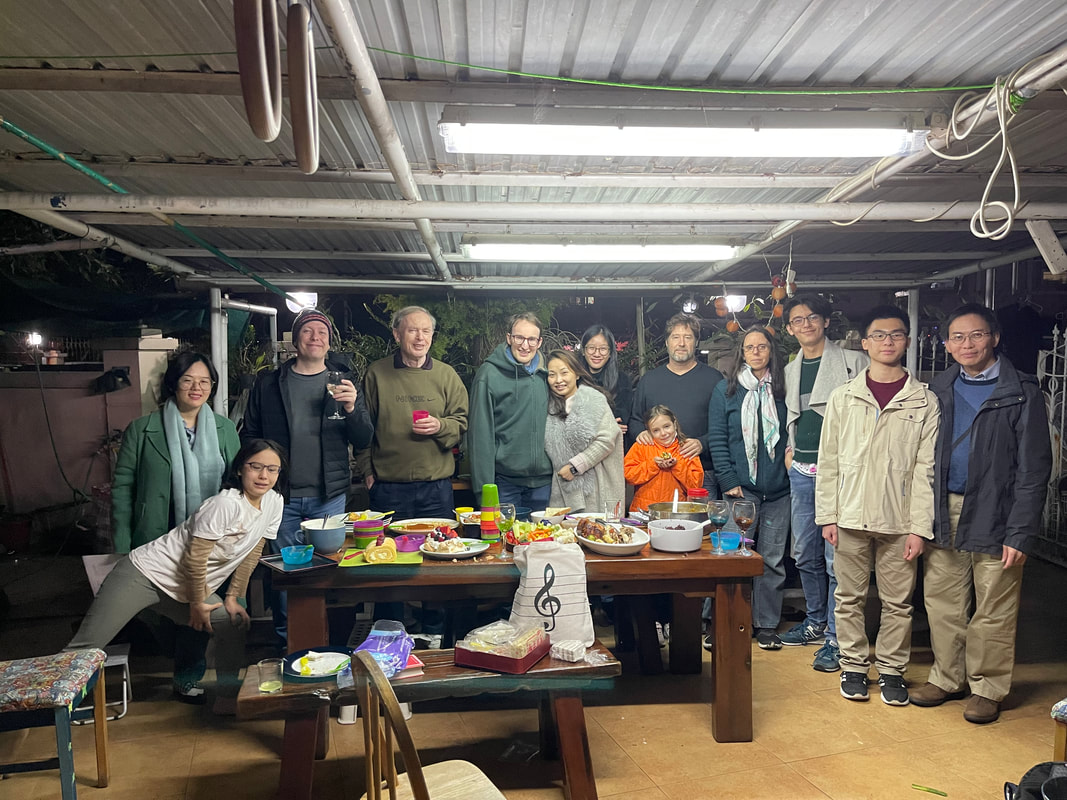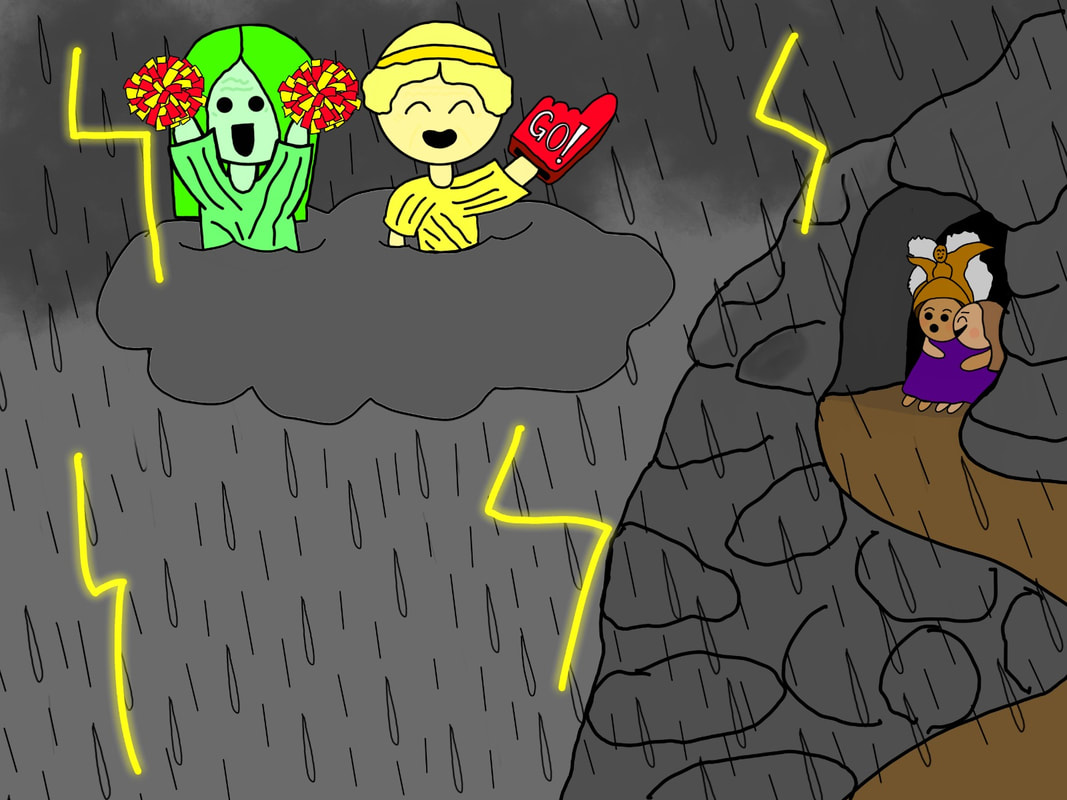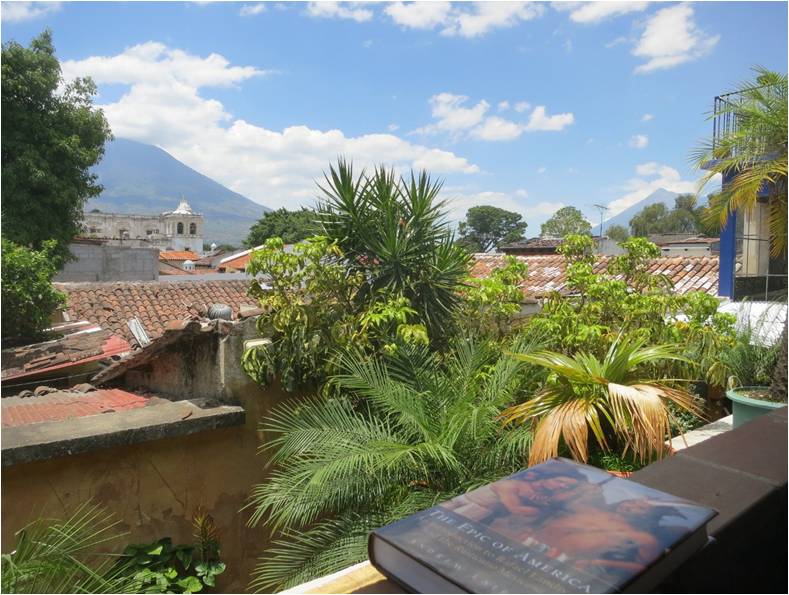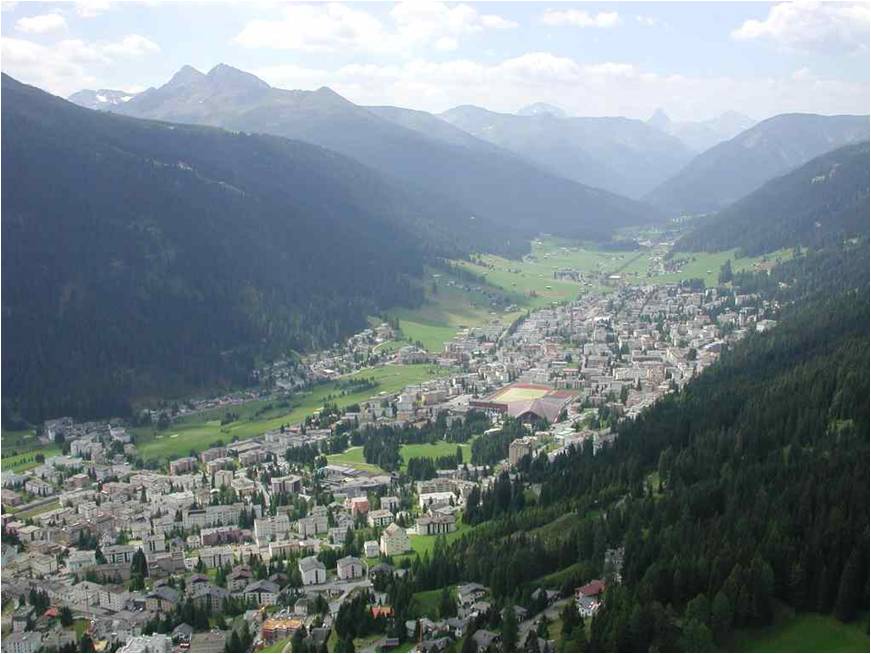| linguae |
|
- HOME
-
LATIN & GREEK
-
CIRCULUS LATINUS HONCONGENSIS
>
- ORATIO HARVARDIANA 2007
- NOMEN A SOLEMNIBUS
- CARMINA MEDIAEVALIA
- BACCHIDES
- LATIN & ANCIENT GREEK SPEECH ENGINES
- MARCUS AURELIUS
- ANGELA LEGIONEM INSPICIT
- REGINA ET LEGATUS
- HYACINTHUS
- LATINITAS PONTIFICALIS
- SINA LATINA >
- MONUMENTA CALEDONICA
- HISTORIA HONCONGENSIS
- ARCADIUS AVELLANUS
- LONDINIUM
- ROMAN CALENDAR
- SOMNIUM
- CIRCULUS VOCABULARY
- HESIOD
- CONVENTUS FEBRUARIUS (I)
- CONVENTUS FEBRUARIUS (II)
- CONVENTUS MARTIUS
- CONVENTUS APR 2018
- CONVENTUS APRILIS
- CONVENTUS MAIUS
- CONVENTUS IUNIUS
- CONVENTUS IULIUS
- CONVENTUS SEPT 2017
- CONVENTUS OCT 2017
- CONVENTUS NOV 2017
- CONVENTUS DEC 2017
- CONVENTUS DEC 2017 (II)
- CONVENTUS JAN 2018
- CONVENTUS FEB 2018
- CONVENTUS MAR 2018
- CONVENTUS MAIUS 2018
- CONVENTUS IUN 2018
- CONVENTUS IUL 2018
- CONVENTUS SEPT 2018
- CONVENTUS OCT 2018
- CONVENTUS NOV 2018
- CONVENTUS DEC 2018
- CONVENTUS NATIVITATIS 2018
- CONVENTUS IAN 2019
- CONVENTUS FEB 2019
- CONVENTUS MAR 2019
- CONVENTUS APR 2019
- CONVENTUS MAIUS 2019
- CONVENTUS IUN 2019
- CONVENTUS IULIUS 2019
- CONVENTUS SEP 2019
- CONVENTUS OCT 2019
- CONVENTUS NOV 2019
- CONVENTUS DEC 2019
- CONVENTUS JAN 2020
- CONVENTUS FEB 2020
- CONVENTUS MAR 2020
- CONVENTUS APR 2020
- CONVENTUS IUL 2020
- CONVENTUS SEP 2020 (I)
- CONVENTUS SEPT 2020 (II)
- CONVENTUS OCT 2020
- CONVENTUS NOV 2020
- CONVENTUS IAN 2021
- CONVENTUS IUN 2021
- CONVENTUS IULIUS 2021
- CONVENTUS AUG 2021
- CONVENTUS SEPT 2021
- CONVENTUS OCT 2021
- CONVENTUS NOV 2021
- CONVENTUS FEB 2022 (1)
- CONVENTUS FEB 2022 (2)
- CONVENTUS MAR 2022
- CONVENTUS APRILIS 2022
- CONVENTUS MAIUS 2022
- CONVENTUS IUN 2022
- CONVENTUS IUL 2022
- CONVENTUS SEP 2022
- CONVENTUS OCT 2022
- CONVENTUS NOV 2022
- CONVENTUS DEC 2022
- CONVENTUS IAN 2023
- CONVENTUS FEB 2023
- CONVENTUS MARTIUS 2023
- CONVENTUS APRIL 2023
- CONVENTUS MAIUS 2023
- CONVENTUS IUN 2023
- CONVENTUS IUL 2023
- CONVENTUS SEP 2023
- CONVENTUS OCT 2023
- CONVENTUS IAN 2024
- CONVENTUS MARTIUS (I) 2024
- RES GRAECAE >
-
IN CONCLAVI SCHOLARI
>
- LATIN I
- LATIN I (CAMBRIDGE)
- LATIN II (CAMBRIDGE)
- LATIN II (MON)
- LATIN II (SAT)
- LATIN III (MON)
- LATIN III (SAT)
- LATIN IV
- LATIN TEENAGERS I
- LATIN TEENAGERS II
- LATIN TEENAGERS III
- LATIN TEENAGERS IV
- LATIN TEENAGERS V
- LATIN TEENAGERS VI
- LATIN TEENAGERS VII
- LATIN TEENAGERS VIII
- LATIN TEENAGERS IX
- LATIN TEENAGERS X
- LATIN TEENAGERS XI
- LATIN SPACE I
- LATIN SPACE II
- LATIN SPACE III
- LATIN SPACE IV
- CARPE DIEM
- INITIUM ET FINIS BELLI
- EPISTULA DE EXPEDITIONE MONTANA
- DE LATINE DICENDI NORMIS >
- ANECDOTA VARIA
- RES HILARES
- CARMINA SACRA
- CORVUS CORAX
- SEGEDUNUM
- VIDES UT ALTA STET NIVE
- USING NUNTII LATINI
- FLASHCARDS
- CARMINA NATIVITATIS
- CONVENTUS LATINITATIS VIVAE >
- CAESAR
- SUETONIUS
- BIBLIA SACRA
- EUTROPIUS
- CICERO
- TACITUS
- AFTER THE BASICS
- AD ALPES
- LIVY
- PLINY
- OVID
- AENEID IV
- AENEID I
- QUAE LATINITAS SIT MODERNA
-
CIRCULUS LATINUS HONCONGENSIS
>
-
NEPALI
- CORRECTIONS TO 'A HISTORY OF NEPAL'
- GLOBAL NEPALIS
- NEPALESE DEMOCRACY
- CHANGE FUSION
- BRIAN HODGSON
- KUSUNDA
- JANG BAHADUR IN EUROPE
- ANCESTORS OF JANG
- SINGHA SHAMSHER
- RAMESH SHRESTHA
- RAMESH SHRESTHA (NEPALI)
- NEPALIS IN HONG KONG
- VSO REMINISCENCES
- BIRGUNJ IMPRESSIONS
- MADHUSUDAN THAKUR
- REVOLUTION IN NEPAL
- NEPAL 1964-2014
- BEING NEPALI
- EARTHQUAKE INTERVIEW
- ARCHIVES IN NEPAL
- FROM THE BEGINNING
- LIMITS OF NATIONALISM
- REST IS HISTORY FOR JOHN WHELPTON
- LIMPIYADHURA AND LIPU LEKH
- BHIMSEN THAPA AWARD LECTURE
- HISTORICAL FICTION
- READING GUIDE TO NEPALESE HISTORY
- LANGUAGES OF THE HIMALAYAS
- REVIEW OF LAWOTI (2007)
- ROMANCE LANGUAGES
-
English
- VIETNAM REFLECTIONS
- GRAMMAR POWERPOINTS
- PHONETICS POWERPOINTS
- MAY IT BE
- VILLAGE IN A MILLION
- ENGLISH RHETORIC
- BALTIC MATTERS
- SHORT STORIES QUESTIONS
- WORD PLAY
- SCOTS
- INTERNATIONAL SCHOOLS
- STORY OF NOTTINGHAM
- MEET ME BY THE LIONS
- MNEMONICS
- ALTITUDE
- KREMLIN'S SUICIDAL IMPERIALISM
- CLASSROOM BATTLEFIELD
- MATHEMATICS AND HISTORICAL LINGUISTICS
- OLD TESTAMENT INJUNCTIONS
- KUIRE ORIGINS
- BALTI
- CUBA
- JINNAH AND MODERN PAKISTAN
- ENGLISH IS NOT NORMAL
- HKAS
QUESTIONS ARISING FROM 131st. MEETING – 4/2/22
(the record of earlier meetings can be downloaded from the main Circulus page as can the version of Ciceronis Filius with illustrations added. The illustrated text of Genesis is available on the Genesis page, of Kepler's Somnium on the Somnium page and of Nutting's Ad Alpes on the Ad Alpes page)
Those attending the year of the Tiger gathering in Kam Tin included, apart from Tanya, Keon, Sam and Ollie themselves, Chris Y, Teagan, Chris C, Hillary, Stuart and his wife Frances, Monica, Eugene, Jesse and John. Chris Y cooked some of the main dishes, which included iūs lentium (daal) orӯza fusca (brown rice), holera frīcta and gallinācea (chicken). The main course was preceded by caseus (cheese), crustula (biscuits) and holera crūda (uncooked vegetables) with iūs iogurtīna (yoghurt dip). Ditas, Tanya’s maid, was also involved in cooking and in particular provided her signature dessert, meringa in crūstā cocta (lemon meringue pie) with spīra Helvetica (swiss roll) and crēmum ex saccharō tostō (crème caramel) also on offer.
The Circulus posing after dinner
Monica had brought alon the Loeb edition of Virgil’s Aeneid and Chris C. read a few lines from the story of Dido and Aeneas in Book IV. He prefers to stress the intial syllable in each foot (unit of two long or one long and two short syllables), six of which make up the hexameter, a name meaning `measure of six. These first syllables mark the `beat’ or ictus of the line but most scholars believe verse ictus did not involve stress but was marked by bodily movment (e.g. tapping of the finger), by a musical instrument or simply felt in the mind. It is likely that Romans themselves kept the stress in the normal position for each word and that this only regularly coincided with the ictus or start of a foot in the last two feet of the line (see the LATN VERSE handout at https://linguae.weebly.com/courses.html and its links to audio files. One of these is Robert Sonkowsky’s interpretation of the opening lines of the Aeneid. Sonkowsky sets out the principles involved and discusses the link between performer and audience at https://scholar.lib.vt.edu/ejournals/ElAnt/V8N2/SonkowskyArticle.pdf, an article entitled `Latin verse-ictus and multi-modal entrainment.’
In Chris’s defence, however, it must be said that this whole area is one of great uncertainty. Many scholars believe that word stress in latin, though it existed, was less strong than in English and other Germanic languages and some – especially among the French – even contend that the Latin accent, like that of Greek in the classical era, was one of pitch, not stress. To make matters still more confusing, worse, some linguists, including the Circulus’s own Joe Perry, argue that even in English stress itself is actually more a matter of pitch than of intensity of sound
Reading with a stress ictus does indeed some to have started in the schoolrooms of late antiquity, when the long-short distinction in Latin vowels was beginning to break down. The tradition continues in many places today, especially in Germany, with somec pedagogical justification, even if it is not fully authentic.
Chris C. and Tanya spoke a little about their family backgrounds. Although Chris is South African and a native speaker of Afrikaans, one of his great-great-grandfathers was a rabbi who around 1910 emigrated from Lithuania, then part of the Russian Empire, to escape the anti-Jewish pogroms. Tanya, who is of Latvian descent through her mother, remembered how as a child she had felt some frustration because the pressure of teaching ill-motivated students meant her mother had less time and energy to devote to the family. Tanya herself had spent some time in Hong Kong as a youngster because her father was working here. On joining the NET scheme, she originally taught in a Band 1 school on Hong Kong island but disliked the rather sterile, urban environment and finally moved to the New Territories, accepting a position at a Band 3 school as the price to be paid. She had at one time applied unsuccessfully to teach at the Hong Kong School of Creativity, which would suit her own artistic background.
On family dynamics generally, Chis C. remarked that the tragedy of women is that they becaome like their mothers and the tragedy of men that they can’t.
Hillary and Chris mentioned the website https://latin-student-problems.tumblr.com/ , which features brief humorous takes on various difficulties and irreverent illustrations or comments on key texts of Latin literature. The one below illustrates the blessing by Juno and the Earth herself of Dido and Aeneas getting together in a cave during a thunder storm.
Monica had brought alon the Loeb edition of Virgil’s Aeneid and Chris C. read a few lines from the story of Dido and Aeneas in Book IV. He prefers to stress the intial syllable in each foot (unit of two long or one long and two short syllables), six of which make up the hexameter, a name meaning `measure of six. These first syllables mark the `beat’ or ictus of the line but most scholars believe verse ictus did not involve stress but was marked by bodily movment (e.g. tapping of the finger), by a musical instrument or simply felt in the mind. It is likely that Romans themselves kept the stress in the normal position for each word and that this only regularly coincided with the ictus or start of a foot in the last two feet of the line (see the LATN VERSE handout at https://linguae.weebly.com/courses.html and its links to audio files. One of these is Robert Sonkowsky’s interpretation of the opening lines of the Aeneid. Sonkowsky sets out the principles involved and discusses the link between performer and audience at https://scholar.lib.vt.edu/ejournals/ElAnt/V8N2/SonkowskyArticle.pdf, an article entitled `Latin verse-ictus and multi-modal entrainment.’
In Chris’s defence, however, it must be said that this whole area is one of great uncertainty. Many scholars believe that word stress in latin, though it existed, was less strong than in English and other Germanic languages and some – especially among the French – even contend that the Latin accent, like that of Greek in the classical era, was one of pitch, not stress. To make matters still more confusing, worse, some linguists, including the Circulus’s own Joe Perry, argue that even in English stress itself is actually more a matter of pitch than of intensity of sound
Reading with a stress ictus does indeed some to have started in the schoolrooms of late antiquity, when the long-short distinction in Latin vowels was beginning to break down. The tradition continues in many places today, especially in Germany, with somec pedagogical justification, even if it is not fully authentic.
Chris C. and Tanya spoke a little about their family backgrounds. Although Chris is South African and a native speaker of Afrikaans, one of his great-great-grandfathers was a rabbi who around 1910 emigrated from Lithuania, then part of the Russian Empire, to escape the anti-Jewish pogroms. Tanya, who is of Latvian descent through her mother, remembered how as a child she had felt some frustration because the pressure of teaching ill-motivated students meant her mother had less time and energy to devote to the family. Tanya herself had spent some time in Hong Kong as a youngster because her father was working here. On joining the NET scheme, she originally taught in a Band 1 school on Hong Kong island but disliked the rather sterile, urban environment and finally moved to the New Territories, accepting a position at a Band 3 school as the price to be paid. She had at one time applied unsuccessfully to teach at the Hong Kong School of Creativity, which would suit her own artistic background.
On family dynamics generally, Chis C. remarked that the tragedy of women is that they becaome like their mothers and the tragedy of men that they can’t.
Hillary and Chris mentioned the website https://latin-student-problems.tumblr.com/ , which features brief humorous takes on various difficulties and irreverent illustrations or comments on key texts of Latin literature. The one below illustrates the blessing by Juno and the Earth herself of Dido and Aeneas getting together in a cave during a thunder storm.
Prīma et Tellus et pronuba Iūnō dant signum (`first both Earth and Juno, patroness of marriage
give the signal’), Aeneid IV, ll.166-7
We still have to decide what to read next, and several suggestions had been made in the December 2021 meeting. Chris C. was in favour of the AP selections from Caesar’s De Bello Gallico, but Eugene preferred the less frequently read De Bello Civili. Eugene also pointed out that we had already read some of Kepler’s Somnium, which had been another of John’s suggestions; in fact, we read chapters 1-XIV (about a half of the main narrative) in December 2017 and summer 2018. The full text of the story, with interlinear translation, is available at https://linguae.weebly.com/somnium.html
We recalled our examination in 2013 of Pope Benedict’s Latin resignation speech, im which there were a couple of minor grammatical errors. John felt that these were not very serious and the real problem with the speech was the speed with which it was delivered. As Latin had ceased to be the language of instruction in the Vatican in the 1960s, many of the princes of the church listeing to Benedict would not have been able to follow. There was, however, a highly competent Latinist among the Italian journalists present and she was able to get the story out to the world ahead of anybody else. For the speech itself, see https://www.scmp.com/news/hong-kong/article/1187369/linguist-discovers-new-papal-pickle
give the signal’), Aeneid IV, ll.166-7
We still have to decide what to read next, and several suggestions had been made in the December 2021 meeting. Chris C. was in favour of the AP selections from Caesar’s De Bello Gallico, but Eugene preferred the less frequently read De Bello Civili. Eugene also pointed out that we had already read some of Kepler’s Somnium, which had been another of John’s suggestions; in fact, we read chapters 1-XIV (about a half of the main narrative) in December 2017 and summer 2018. The full text of the story, with interlinear translation, is available at https://linguae.weebly.com/somnium.html
We recalled our examination in 2013 of Pope Benedict’s Latin resignation speech, im which there were a couple of minor grammatical errors. John felt that these were not very serious and the real problem with the speech was the speed with which it was delivered. As Latin had ceased to be the language of instruction in the Vatican in the 1960s, many of the princes of the church listeing to Benedict would not have been able to follow. There was, however, a highly competent Latinist among the Italian journalists present and she was able to get the story out to the world ahead of anybody else. For the speech itself, see https://www.scmp.com/news/hong-kong/article/1187369/linguist-discovers-new-papal-pickle
Pope Benedict XVI
https://www.biography.com/religious-figure/pope-benedict-xvi
Towards the end of the evening we read the dialogues on Chinese New Year celebrations, as conducted before the arrival; of the pandemic, and on the Roman festival of Anna Perenna (see below). The latter was held on 15 March to mark the arrival of spring and, originally, also the start of the New Year. The old Roman method of beginning the year in March explains how the months September, October, November and December., now the seventh, eighth, ninth and tenth months, derive from the numbers seven, eight, nine and ten.Similarly, July and August, thus renamed to honour Julius Caesar and Augustus, were previously known as Quinctilis and Sextilis. It is nevertheless possible that, for some purposes, January might also have been regarded as the opening month of the year from early on, as the name of the moneth is connected to the iānua(door). However, there is no doubt that the date of the consuls entering into office was moves to January from March in 153 B.C., probably to ensure that they had time to get to far-off war theatres like Spain in time fror the start of the campaigning season..
The description of the festival of Anna Perenna in the dialogue is taken from Ovid’s Fasti (`Calendar Lists’), in which he set out to describe all the Roman festivals, month by month. Unfortunately, he only managed to cover the first six months, probably because of his exile to what is now Romania in 8 A.D.
The reform of the calendar carried out under Julius Caesar in 45 B.C. involved giving month their current lengths and also the start of the system of Leap Years. The addition of an extra day to February every four years served roughly to keep the months aligned with the seasons but was a slight over correction. Consequently Pope Gregory in the 16th century instituted our present system, under which in ever year divisible by 100 the extra day was not added unless the number was also divisible by 400. Thus 1700, 1800 and 1900 were not Leap Years but 1600 and 2000 were.
Before Leap Years were introduced, the official year totalled only 355 days and Rome kept the calendar roughly in line with the solar year by adding an additional – or `intercalary’ - month every few years. This system, which was subject to manipulation by the priests charged with its supervision, was inherently unsatidsfactory and the pronblem confounded by manipulation for political purposes (see . https://www.britannica.com/science/Roman-republican-calendar) Some people have suggested that by 50/49 B.C. the inaccuracy was so great that Caesar’s own invasion of Italy actually took place in the autumn, even though the calendar said it was in January!
https://www.biography.com/religious-figure/pope-benedict-xvi
Towards the end of the evening we read the dialogues on Chinese New Year celebrations, as conducted before the arrival; of the pandemic, and on the Roman festival of Anna Perenna (see below). The latter was held on 15 March to mark the arrival of spring and, originally, also the start of the New Year. The old Roman method of beginning the year in March explains how the months September, October, November and December., now the seventh, eighth, ninth and tenth months, derive from the numbers seven, eight, nine and ten.Similarly, July and August, thus renamed to honour Julius Caesar and Augustus, were previously known as Quinctilis and Sextilis. It is nevertheless possible that, for some purposes, January might also have been regarded as the opening month of the year from early on, as the name of the moneth is connected to the iānua(door). However, there is no doubt that the date of the consuls entering into office was moves to January from March in 153 B.C., probably to ensure that they had time to get to far-off war theatres like Spain in time fror the start of the campaigning season..
The description of the festival of Anna Perenna in the dialogue is taken from Ovid’s Fasti (`Calendar Lists’), in which he set out to describe all the Roman festivals, month by month. Unfortunately, he only managed to cover the first six months, probably because of his exile to what is now Romania in 8 A.D.
The reform of the calendar carried out under Julius Caesar in 45 B.C. involved giving month their current lengths and also the start of the system of Leap Years. The addition of an extra day to February every four years served roughly to keep the months aligned with the seasons but was a slight over correction. Consequently Pope Gregory in the 16th century instituted our present system, under which in ever year divisible by 100 the extra day was not added unless the number was also divisible by 400. Thus 1700, 1800 and 1900 were not Leap Years but 1600 and 2000 were.
Before Leap Years were introduced, the official year totalled only 355 days and Rome kept the calendar roughly in line with the solar year by adding an additional – or `intercalary’ - month every few years. This system, which was subject to manipulation by the priests charged with its supervision, was inherently unsatidsfactory and the pronblem confounded by manipulation for political purposes (see . https://www.britannica.com/science/Roman-republican-calendar) Some people have suggested that by 50/49 B.C. the inaccuracy was so great that Caesar’s own invasion of Italy actually took place in the autumn, even though the calendar said it was in January!
Reading `the American Virgil’ on a rooftop in Antigua, Guatemala
https://medium.com/in-medias-res/from-the-editor-on-the-road-in-latin-america-6758e4a3e2f
Monica had been reading Stuart’s Empires of Eloquence, a well-received study which looks at the use of Latin for rhetorical purposes in in Spanish and Portuguese colonies in Latin America, Asia and Africa. Stuart himself explained that he had originally thought of working on Italian Renaissance texts but then got interested in Latin literature produced in Mexico and went there to study the manuscripts.
Among Latin works produced in Latin America, the best known is proabably Rusticātiō Mexicāna, by the `American Virgil’, Rafael Landivar, a Guatemalan-born Jesuit who was exiled to Europe with other members of his order in 1767. Published in 1781, this work, which was briefly discussed in the September 2013 meeting of the Circulus, deals with the flora and fauna and rural customs of `Mexico’ in the wider sense, comprising territory from El Salvador as far north as California, Texas and Utah. There are quotations with translations at https://linguae.weebly.com/circulus-latinus-honcongensis.html and extended treatments at http://roserwilliams.com/Latin.RomanIdealsHispanicNewWorld.pdf, and in two essays by John Byron Kuhner: `On the Road in Latin America: the Pleasures of Latin Poetry – in Guatemala’ and `In Search Of The American Virgil: On the Latin Poetry of Fr. Rafael Landivar.’ The full original Latin text of the 15-book hexameter-poem is available on-line at https://archive.org/details/raphaelislandiva00land and the text with translation and commentary has been republished in Andrew Laird’s 2006 volume The Epic of America: An Introduction to Rafael Landívar and the Rusticatio Mexicana Finally, the use of Latin in the region is also covered in Nick Ostler’s history of the language Ad Infinitum
ChrisY, a veteran of the Davos World Economic Forum, recounted how he began cooking his own food there, aghast at the high cost of dining in Swiss restaurants. His reputation grew and he eventually found himself cooking for as many as 60 or 70 people, an arrangement which people came to value for its excellent networking opportunities as well as for the cooking itself.
Conversation naturally turned to Covid, and the current accelerating fifth wave. John thought that positive incentives, such as special cash handouts, might be the most effective way of boosting Hong Kong’s vaccination rate. However, Chris said that studies had shown that the stick seemed mopre effective than the carrot and that measures like banning the unvaccinated from certain venues were therefore useful.
Several members of the Circulus rested positive for the virus a few days after the meeting, though, given the speed with which the Omicron variant is spreading, it is impossible to say whether any of the transmission took place at our session. Luckily, everyone now seems to have reovered and also escaped government quarantine camp.
https://medium.com/in-medias-res/from-the-editor-on-the-road-in-latin-america-6758e4a3e2f
Monica had been reading Stuart’s Empires of Eloquence, a well-received study which looks at the use of Latin for rhetorical purposes in in Spanish and Portuguese colonies in Latin America, Asia and Africa. Stuart himself explained that he had originally thought of working on Italian Renaissance texts but then got interested in Latin literature produced in Mexico and went there to study the manuscripts.
Among Latin works produced in Latin America, the best known is proabably Rusticātiō Mexicāna, by the `American Virgil’, Rafael Landivar, a Guatemalan-born Jesuit who was exiled to Europe with other members of his order in 1767. Published in 1781, this work, which was briefly discussed in the September 2013 meeting of the Circulus, deals with the flora and fauna and rural customs of `Mexico’ in the wider sense, comprising territory from El Salvador as far north as California, Texas and Utah. There are quotations with translations at https://linguae.weebly.com/circulus-latinus-honcongensis.html and extended treatments at http://roserwilliams.com/Latin.RomanIdealsHispanicNewWorld.pdf, and in two essays by John Byron Kuhner: `On the Road in Latin America: the Pleasures of Latin Poetry – in Guatemala’ and `In Search Of The American Virgil: On the Latin Poetry of Fr. Rafael Landivar.’ The full original Latin text of the 15-book hexameter-poem is available on-line at https://archive.org/details/raphaelislandiva00land and the text with translation and commentary has been republished in Andrew Laird’s 2006 volume The Epic of America: An Introduction to Rafael Landívar and the Rusticatio Mexicana Finally, the use of Latin in the region is also covered in Nick Ostler’s history of the language Ad Infinitum
ChrisY, a veteran of the Davos World Economic Forum, recounted how he began cooking his own food there, aghast at the high cost of dining in Swiss restaurants. His reputation grew and he eventually found himself cooking for as many as 60 or 70 people, an arrangement which people came to value for its excellent networking opportunities as well as for the cooking itself.
Conversation naturally turned to Covid, and the current accelerating fifth wave. John thought that positive incentives, such as special cash handouts, might be the most effective way of boosting Hong Kong’s vaccination rate. However, Chris said that studies had shown that the stick seemed mopre effective than the carrot and that measures like banning the unvaccinated from certain venues were therefore useful.
Several members of the Circulus rested positive for the virus a few days after the meeting, though, given the speed with which the Omicron variant is spreading, it is impossible to say whether any of the transmission took place at our session. Luckily, everyone now seems to have reovered and also escaped government quarantine camp.
A view of Davos from a paraglider
CC BY-SA 3.0, https://commons.wikimedia.org/w/index.php?curid=234149
CC BY-SA 3.0, https://commons.wikimedia.org/w/index.php?curid=234149





